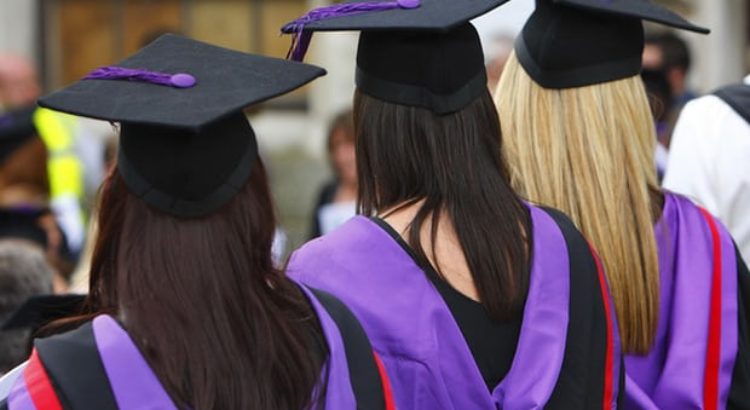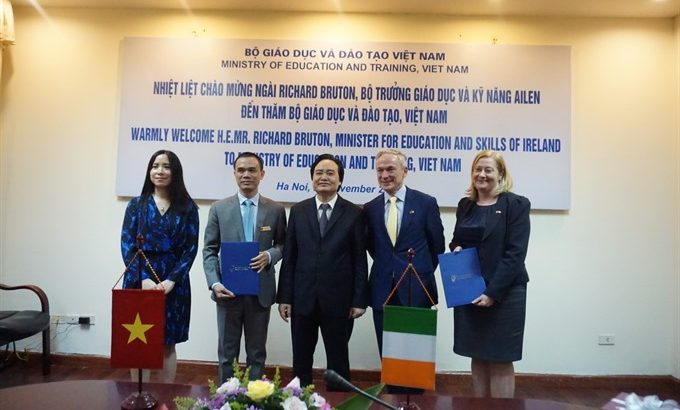Oceania/Australia/universityworldnews.com
Reseña: La legislación federal para rastrear la influencia de los gobiernos extranjeros en Australia afectaría el trabajo de miles de académicos que colaboran con investigadores fuera del país, dice Universities Australia. La organización ha pedido a los parlamentarios federales que respalden las enmiendas del gobierno a su propuesto Plan de Transparencia de Influencia Extranjera. Sostiene que la legislación impondría una nueva burocracia y restricciones significativas a los esfuerzos de Australia para trabajar con socios internacionales «en tecnologías de vanguardia». El proyecto de ley también enfureció a las autoridades chinas que lo consideran un ataque contra los vínculos cada vez más estrechos de China con empresas australianas y otras organizaciones, incluidas universidades. Más de 170,000 estudiantes de China están estudiando en Australia y representan un asombroso 45% de las matrículas de estudiantes internacionales, con mucho la mayor proporción de extranjeros de un solo país. Pero la preocupación ha estado creciendo entre los principales políticos, y muchos en el público en general, sobre la influencia que China está tratando de ejercer sobre las políticas australianas. El gobierno afirma que la legislación no está dirigida a ningún país en particular, aunque China es claramente el objetivo principal. Y también lo está Rusia, siguiendo la experiencia de los Estados Unidos con esa otra nación comunista durante sus últimas elecciones presidenciales. Duncan Lewis, jefe de la Organización de Inteligencia de Seguridad de Australia, se refirió a las amenazas extranjeras como evidencia que dio a una audiencia en el Senado el mes pasado. Lewis describió la escala actual de la actividad de inteligencia extranjera contra los intereses australianos como «sin precedentes». «Los actores extranjeros intentan de forma encubierta influir y dar forma a las opiniones de los miembros del público australiano, los medios australianos, los funcionarios del gobierno australiano y los miembros de las comunidades de la diáspora aquí en Australia», dijo en la audiencia. Entre las comunidades más grandes de Australia nacidas en el extranjero, hay personas de China. En una presentación ante el Comité Conjunto Parlamentario sobre Inteligencia y Seguridad, Universities Australia dijo que las enmiendas propuestas por el gobierno a su legislación de influencia extranjera habían «recorrido un largo camino» para resolver las preocupaciones del sector de educación superior con la propuesta original. La directora ejecutiva de Universities Australia, Catriona Jackson, dijo que las enmiendas propuestas eran una forma sensata de hacer que el plan fuera más factible. «Cada vez que un académico australiano trabaja junto con un colega en el extranjero, aportan nuevas ideas y experiencia valiosas a Australia», dijo. «Estas enmiendas significan que nuestros investigadores increíblemente talentosos pueden dedicar más tiempo a resolver los grandes problemas de Australia y menos al papeleo». En declaraciones al comité, Jackson agradeció al Fiscal General Christian Porter y al gobierno por resolver los problemas planteados por las universidades.
Federal legislation to track the influence of foreign governments in Australia would affect the work of thousands of academics collaborating with researchers outside the country, says Universities Australia.
The organisation has called on federal parliamentarians to support the government’s own amendments to its proposed Foreign Influence Transparency Scheme.
It argues that the legislation would place significant new red tape and restrictions on Australia’s efforts to work with international partners “on cutting-edge technologies”.
The bill has also infuriated Chinese authorities who see it as an attack on China’s increasingly close links with Australian business and other organisations, including universities.
More than 170,000 students from China are now studying in Australia and they comprise a startling 45% of international student enrolments, by far the largest proportion of foreigners from just one country.
But concern has been growing among senior politicians, and many in the general public, about the influence China is trying to exert on Australian policies.
The government claims the legislation is not aimed at any individual country although China is clearly the main target. And so is Russia, following the United States’ experience with that other Communist nation during its last presidential elections.
Duncan Lewis, head of the Australian Security Intelligence Organisation, referred to foreign threats in evidence he gave to a Senate hearing last month. Lewis described the current scale of foreign intelligence activity against Australian interests as “unprecedented”.
“Foreign actors covertly attempt to influence and shape the views of members of the Australian public, the Australian media, officials in the Australian government and members of the diaspora communities here in Australia,” he told the hearing.
Among the largest of the overseas-born communities in Australia are people from China.
In a submission to the Parliamentary Joint Committee on Intelligence and Security, Universities Australia said the amendments proposed by the government to its foreign influence legislation had “gone a long way” to resolve the higher education sector’s concerns with the original proposal.
Universities Australia Chief Executive Catriona Jackson said the proposed amendments were a sensible way to make the scheme more workable.
“Every time an Australian academic works together with an overseas colleague, they bring valuable new ideas and expertise home to Australia,” she said.
“These amendments mean that our incredibly talented researchers can spend more time solving Australia’s big problems, and less on paperwork.”
Speaking to the committee, Jackson thanked Attorney-General Christian Porter and the government for resolving the issues raised by the universities.
Compromise amendments
Porter has agreed to present compromise amendments to government legislation that sets out a register of foreign agents. The amendments would limit how many groups the bill would apply to.
The changes are designed to resolve criticisms of the legislation by universities, charities and others, as well as ensuring acceptance by the opposition Labor Party.
The bill for establishing the register is being considered by the Parliamentary Joint Committee on Intelligence and Security. On 14 June, the committee released a bipartisan report that accepted 60 amendments to counter the threat of foreign interference.
Porter said that having the legislation passed by the end of the month would allow for Australia’s new legal framework to be adopted promptly.
He said this was designed to address espionage, interference and foreign influence in Australia’s democratic processes and would be fully operational before the next scheduled general election.
The bill currently provides that people be required to register if undertaking certain activities on behalf of a foreign government, public enterprise, political organisation, business or individual.
The amendments would limit ‘foreign principals’ to foreign governments, foreign government-related entities, political organisations and government-related individuals.
“This ensures that only organisations or individuals ultimately working at the direction of a foreign government or political party are required to register,” Porter said.
In response to criticisms by universities and charities, Porter said the definition of ‘undertaking activity on behalf of a foreign principal’ would be amended.
This would mean a person would not be deemed to be undertaking an activity merely because they were supervised by, received funding from or collaborated with ‘a foreign principal’.
Fuente: http://www.universityworldnews.com/article.php?story=20180621094856451









 Users Today : 24
Users Today : 24 Total Users : 35460233
Total Users : 35460233 Views Today : 29
Views Today : 29 Total views : 3418924
Total views : 3418924